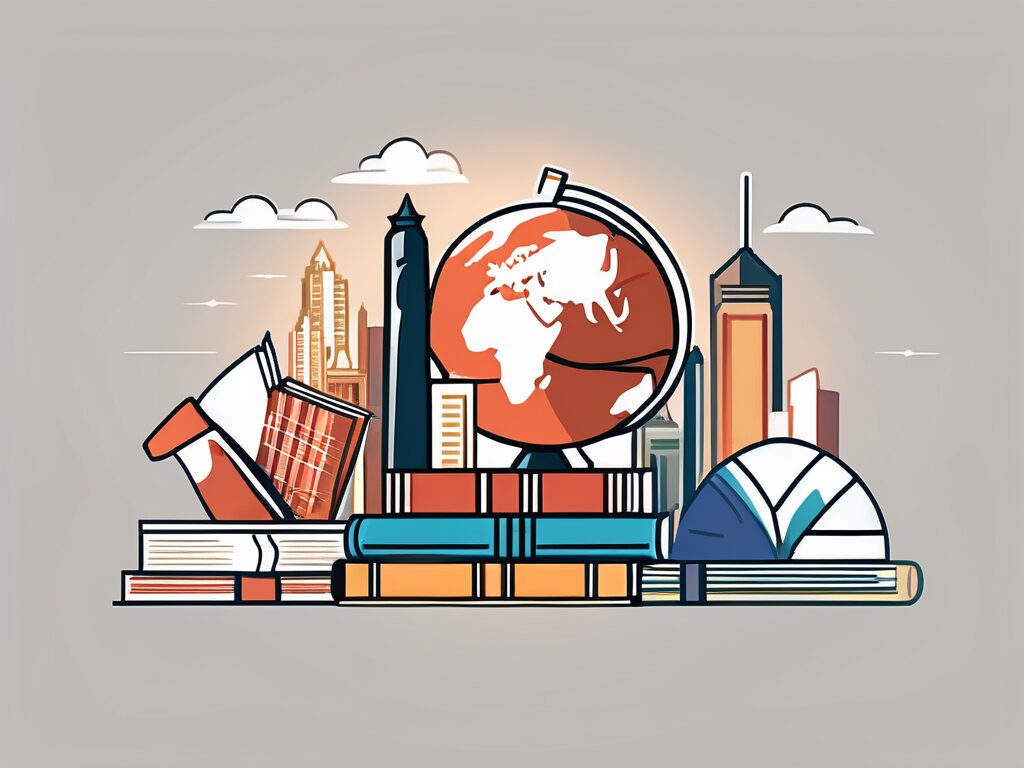html
Overcoming 6 Key Education Barriers for MA Teachers in Thailand
In the vibrant landscape of education in Thailand, Master of Arts (MA) teachers face a myriad of challenges that can hinder their effectiveness and professional growth. From cultural differences to resource limitations, these barriers can be daunting. However, understanding and addressing these obstacles is crucial for fostering a more inclusive and effective educational environment. In this blog post, we will explore six key education barriers faced by MA teachers in Thailand and provide actionable insights on how to overcome them. Whether you are an aspiring teacher or an experienced educator, this guide aims to empower you to navigate these challenges successfully.
1. Cultural Differences: Bridging the Gap
One of the most significant barriers MA teachers encounter in Thailand is the cultural differences that exist between educators and students. Understanding Thai culture, traditions, and social norms is essential for building rapport and trust with students. For instance, the concept of ‘kreng jai’—a cultural trait that emphasizes respect and consideration for others—can influence classroom dynamics.
To overcome this barrier, teachers should invest time in learning about Thai culture and customs. Engaging with local communities, participating in cultural events, and seeking mentorship from experienced Thai educators can provide valuable insights. Additionally, incorporating culturally relevant materials into lesson plans can enhance student engagement and foster a more inclusive classroom environment.
2. Language Proficiency: Enhancing Communication
Language proficiency is another critical barrier for MA teachers in Thailand, particularly for those who are non-native speakers of Thai. Effective communication is vital for delivering lessons, providing feedback, and building relationships with students and parents. Limited language skills can lead to misunderstandings and hinder the learning process.
To address this challenge, teachers should consider enrolling in Thai language courses to improve their proficiency. Additionally, using visual aids, gestures, and simplified language can facilitate better communication in the classroom. Collaborating with bilingual colleagues can also provide support and enhance the learning experience for students.
3. Resource Limitations: Maximising Available Tools
Many schools in Thailand face resource limitations, including inadequate teaching materials, outdated technology, and insufficient classroom space. These constraints can significantly impact the quality of education that MA teachers can provide. However, with creativity and resourcefulness, teachers can still deliver effective lessons.
One way to overcome resource limitations is by leveraging free online resources and educational platforms. Websites like Khan Academy and Coursera offer a wealth of materials that can supplement classroom instruction. Additionally, teachers can collaborate with colleagues to share resources and create a more enriching learning environment. Engaging with local businesses for sponsorship or donations can also help acquire necessary materials.
4. Administrative Challenges: Navigating Bureaucracy
Administrative challenges, such as bureaucratic red tape and rigid policies, can pose significant barriers for MA teachers in Thailand. These challenges can limit teachers’ autonomy and hinder their ability to implement innovative teaching methods. Understanding the administrative landscape is crucial for navigating these obstacles effectively.
To overcome administrative challenges, teachers should familiarize themselves with school policies and procedures. Building strong relationships with school administrators can also facilitate smoother communication and collaboration. Additionally, advocating for change through professional development workshops and teacher associations can empower educators to influence policy decisions that benefit both teachers and students.
5. Professional Development: Continuous Learning
In a rapidly evolving educational landscape, continuous professional development is essential for MA teachers to stay current with best practices and pedagogical advancements. However, access to professional development opportunities can be limited in some regions of Thailand.
To address this barrier, teachers should actively seek out professional development opportunities, such as workshops, conferences, and online courses. Joining professional organizations and networks can also provide access to valuable resources and support. Additionally, collaborating with colleagues to share knowledge and experiences can foster a culture of continuous learning within the school community.
6. Student Engagement: Fostering Motivation
Engaging students in the learning process is a fundamental aspect of effective teaching. However, MA teachers in Thailand may encounter challenges in motivating students, particularly in a traditional education system that often prioritizes rote memorization over critical thinking and creativity.
To enhance student engagement, teachers should incorporate interactive and student-centred teaching methods into their lessons. Techniques such as project-based learning, group discussions, and hands-on activities can foster a more dynamic learning environment. Additionally, understanding students’ interests and incorporating them into lesson plans can significantly boost motivation and participation.
Conclusion
Overcoming the key education barriers faced by MA teachers in Thailand requires a proactive and resourceful approach. By understanding cultural differences, enhancing language proficiency, maximising available resources, navigating administrative challenges, pursuing continuous professional development, and fostering student engagement, educators can create a more inclusive and effective learning environment.
As we strive for a more inclusive education system in Malaysia, the role of qualified and well-trained educators becomes increasingly crucial. Empower Your Teaching Career with IPGCE As we strive for a more inclusive education system in Malaysia, the role of qualified and well-trained educators becomes increasingly crucial. IPGCE is dedicated to supporting teachers in their professional journey, offering the International Postgraduate Certificate in Education (iPGCE) to enhance qualifications and open doors to international teaching opportunities. With our program, you can expect a significant increase in interview callbacks, promotion rates, and salary. Plus, you’ll join a global network of educators, gain a deeper understanding of international curricula, and enjoy the flexibility of online study. Don’t let inadequate credentials or isolation hold you back. Join the UK’s #1 Teacher Training Course today and take a decisive step towards a fulfilling career in inclusive education.
For more insights on enhancing your teaching career, check out our related articles on Professional Development for Teachers and Effective Teaching Strategies.
Connect with us on LinkedIn to stay updated and join a community of passionate educators!

